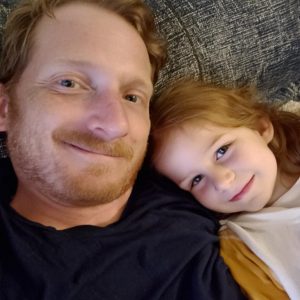I always thought I understood silence. Growing up with Keane, you learn to read things most people miss—a flick of the eyes, a twitch in the jaw, the way he’d line up his pencils by color and size before homework. You learn patience too, or you learn to pretend. Because pretending is what got us through most of childhood.
Keane was diagnosed when he was three. I was six. I don’t remember the moment they told us, but I remember the shift. Our house got quieter. Mom got tired. Dad got angry at weird things, like the sound of crinkling chip bags or cartoons playing too loud. I got good at being invisible.
But Keane? He stayed the same. Gentle. Withdrawn. Smiling sometimes, usually at clouds or ceiling fans.
He didn’t talk. Not then. Not really ever.
It was a Tuesday, which meant diaper laundry and leftover pasta and trying not to scream. My baby, Owen, had just hit six months and was in a phase I could only describe as “tiny demon trapped in a marshmallow.” My husband, Will, had been working longer shifts at the hospital, and I was hanging by a thread made of cold coffee and mental checklists. Keane, as usual, was in the corner of the living room, hunched over his tablet, matching colors and shapes in a never-ending loop of silent order.
We’d taken Keane in six months ago, just before Owen was born. Our parents had passed a few years apart—Dad from a stroke, Mom from cancer—and after a long and painful stint in state housing that left him more withdrawn than ever, I couldn’t leave him there. He said nothing when I offered our home. Just nodded once, his eyes not quite meeting mine.






